15 Protein-Packed Fruits Nutritionists Swear By for a Healthier You
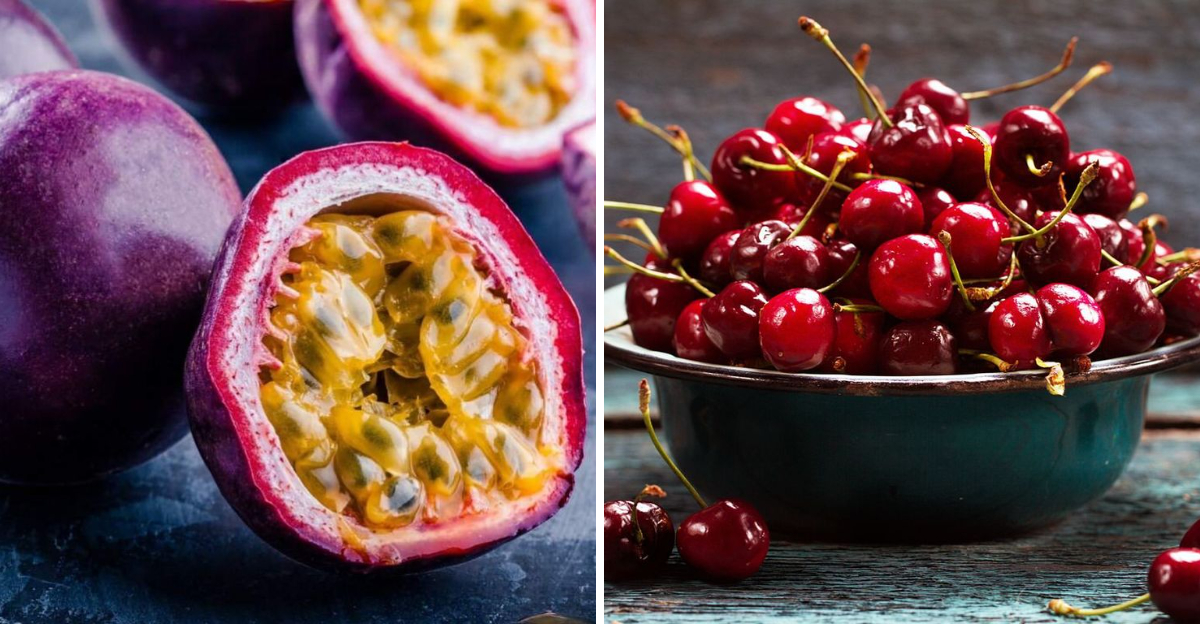
Exploring fruits as a source of protein can be both delicious and nutritious. While fruits are not typically recognized for their protein content, certain varieties do offer this essential nutrient. Incorporating these fruits into your diet can provide a balance of vitamins, minerals, and proteins, contributing to overall health. Nutritionists often highlight specific fruits that, along with a balanced diet, can help you meet your protein needs. Here are 15 fruits packed with protein that can support a healthier lifestyle.
1. Guava
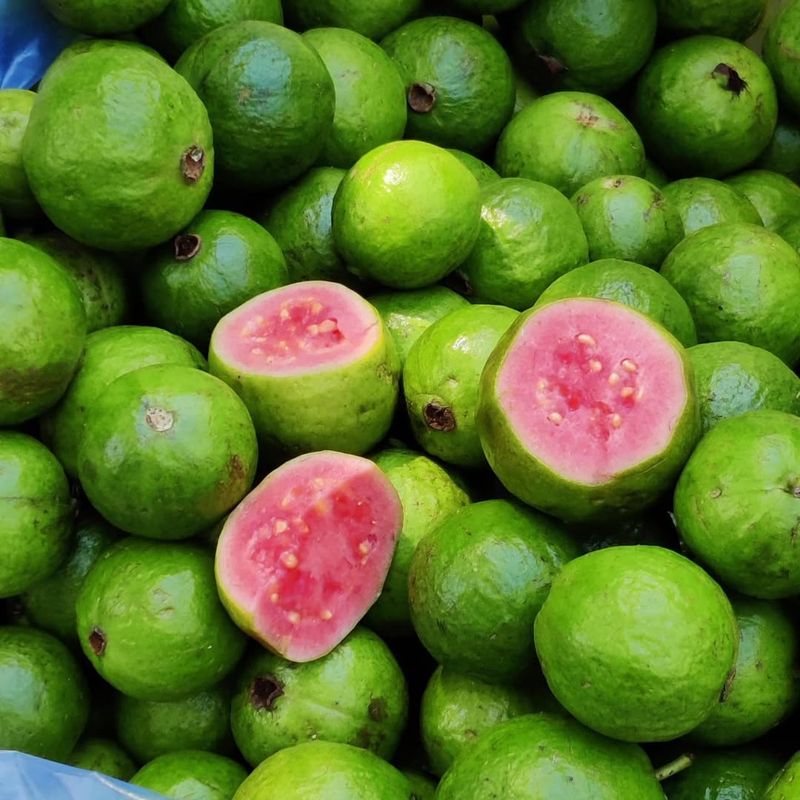
Guava is a tropical delight that’s not only rich in vitamin C but also offers a surprising protein content. Each serving provides about 4.2 grams of protein, making it a unique fruit in your diet. Guavas can be enjoyed fresh, juiced, or added to salads for a nutritious boost. Incorporating guava into your meals not only enhances flavor but also offers essential nutrients that support immune health. Its versatile nature makes it an excellent addition to any meal, whether as a snack or a side dish. Enjoying guava regularly can contribute to meeting daily protein requirements.
2. Avocado
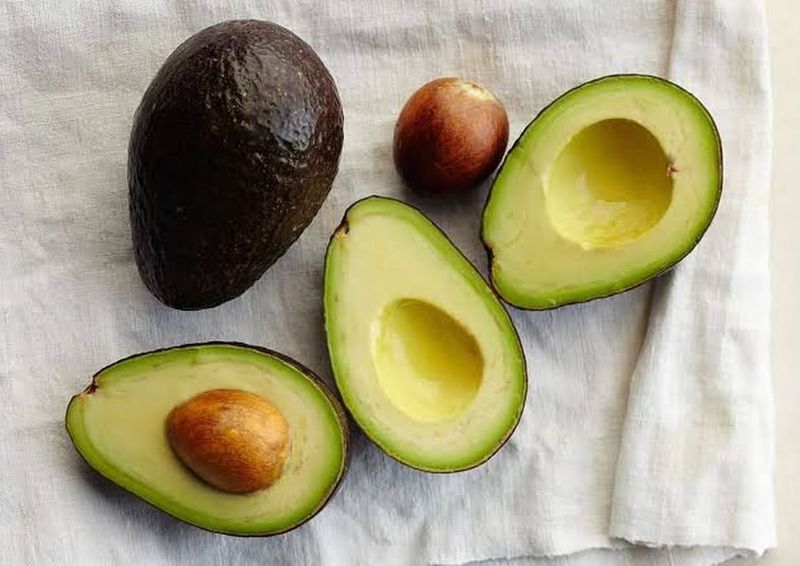
Avocados are well-known for their healthy fats, but they also pack a protein punch. A single avocado contains around 3 grams of protein. This creamy fruit can be mashed into guacamole, sliced into salads, or spread on toast. Avocados provide not just protein but also essential fatty acids that promote heart health. They are versatile and can be enjoyed in various dishes, both savory and sweet. Including avocados in your diet can enhance nutrient intake and add a creamy texture to your meals, making them a must-have for those seeking nutritious options.
3. Apricots

Apricots are small, orange fruits that surprise many with their protein content, offering about 0.5 grams per serving. While not the highest, their combination of nutrients makes them valuable. These fruits can be consumed fresh or dried, adding a sweet and tangy flavor to dishes. Apricots are rich in antioxidants and dietary fiber, promoting digestive health and overall well-being. Including them in your diet can be a sweet way to enjoy a bit more protein while also indulging in the beneficial compounds they offer.
4. Blackberries
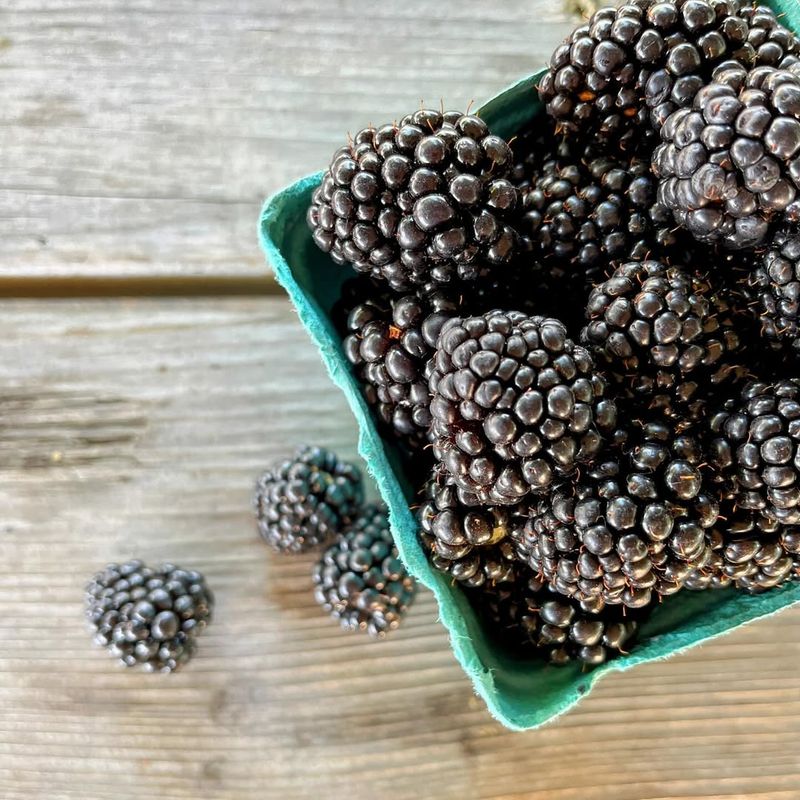
Blackberries are not only juicy and delicious but also provide a modest amount of protein, roughly 2 grams per cup. These dark berries are packed with antioxidants and vitamins. They can be eaten fresh, added to smoothies, or used in desserts for a nutritious twist. Blackberries support heart health and offer anti-inflammatory benefits, making them a perfect addition to a balanced diet. Their rich color and sweet-tart taste enhance any dish, providing a delightful way to increase your protein intake without sacrificing flavor.
5. Oranges
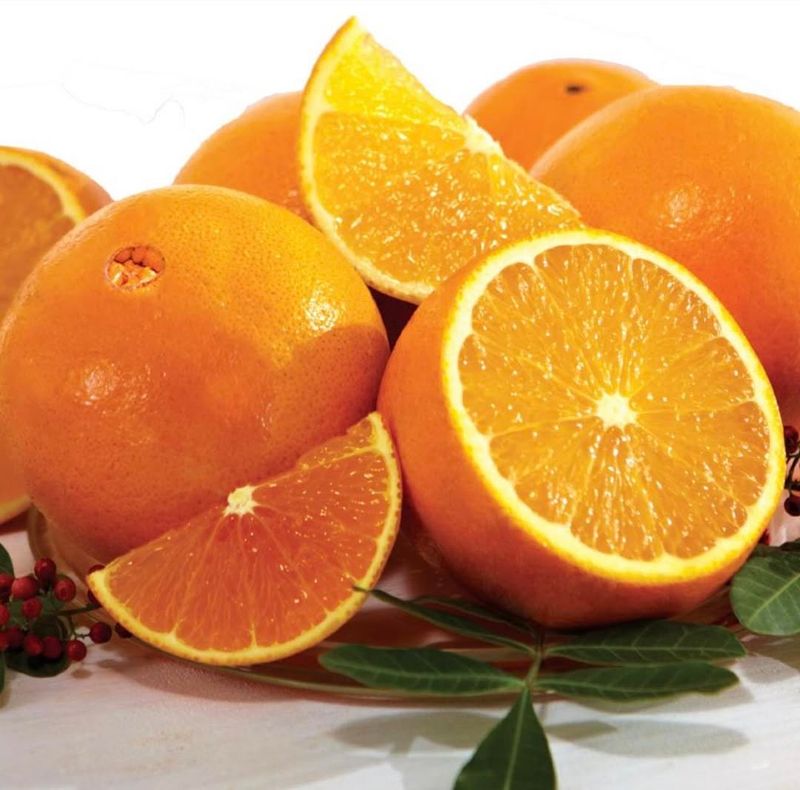
Oranges are typically celebrated for their vitamin C, but they also contain about 1.2 grams of protein per fruit. This citrus favorite offers a refreshing taste and essential nutrients. Oranges can be enjoyed as a snack, juiced, or added to various recipes. They contribute to skin health and immune function, making them a versatile fruit for your daily diet. Including oranges can provide a refreshing way to enjoy a little more protein while benefiting from their well-known vitamin and mineral content. Their versatility ensures they can be part of any meal plan.
6. Kiwi
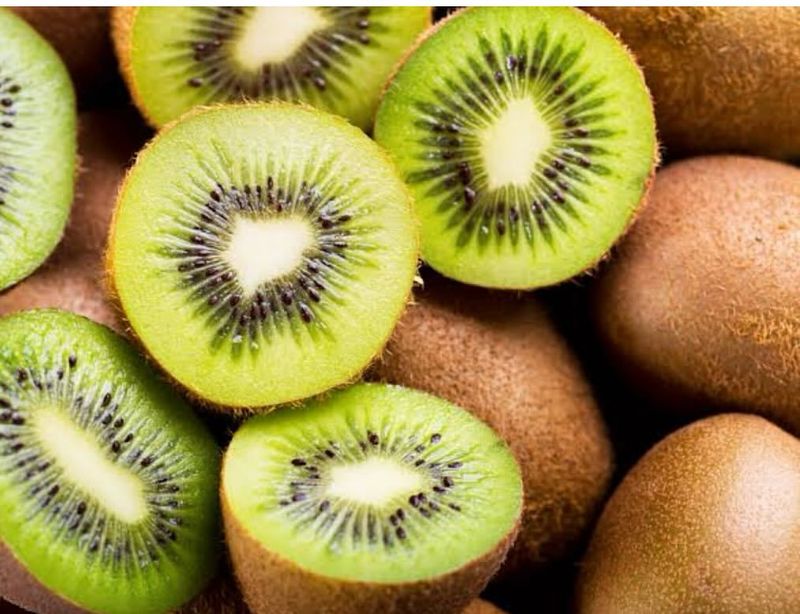
Kiwi is a small but mighty fruit, offering about 2 grams of protein per cup along with a high vitamin C content. Its tangy taste and vibrant green color make it a favorite among many. Kiwis are perfect for snacking, adding to fruit salads, or blending into smoothies. This fruit supports digestion and boosts immunity, providing a nutrient-rich option for health-conscious individuals. Adding kiwi to your daily diet can enhance your protein intake while enjoying its refreshing flavor. Its unique taste and texture make it a delightful addition to any meal.
7. Jackfruit
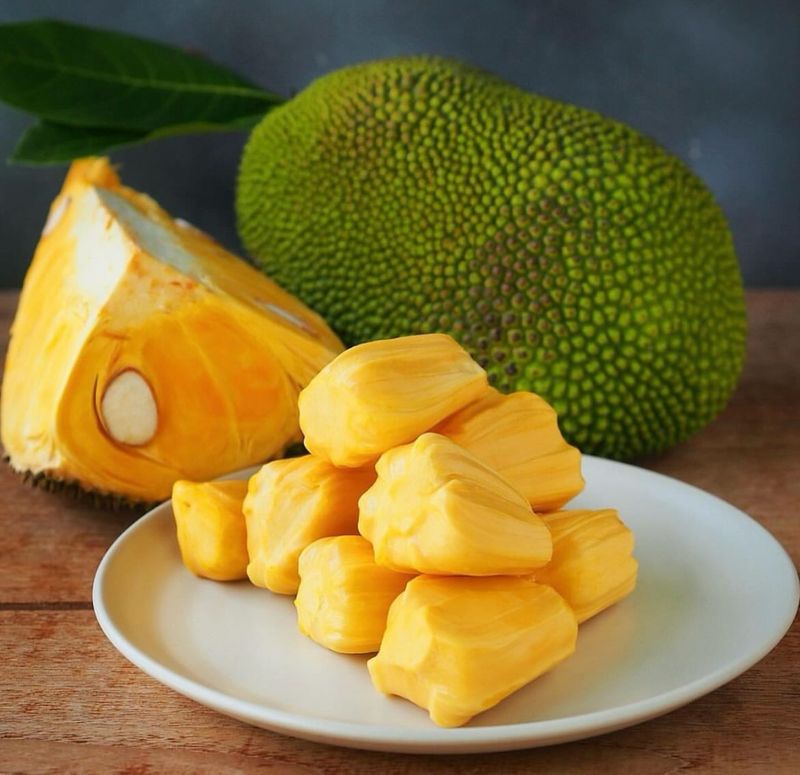
Jackfruit is a tropical powerhouse, offering around 3 grams of protein per cup. Known for its impressive size and versatility, it’s often used as a meat substitute in vegan dishes. This fruit can be eaten raw or cooked, providing a unique texture and flavor. Jackfruit is rich in vitamins and minerals, contributing to heart health and digestion. Its substantial protein content makes it an appealing choice for vegetarians and vegans looking to boost their intake. Including jackfruit in your meals can add variety and an exotic touch to your culinary repertoire.
8. Pomegranates
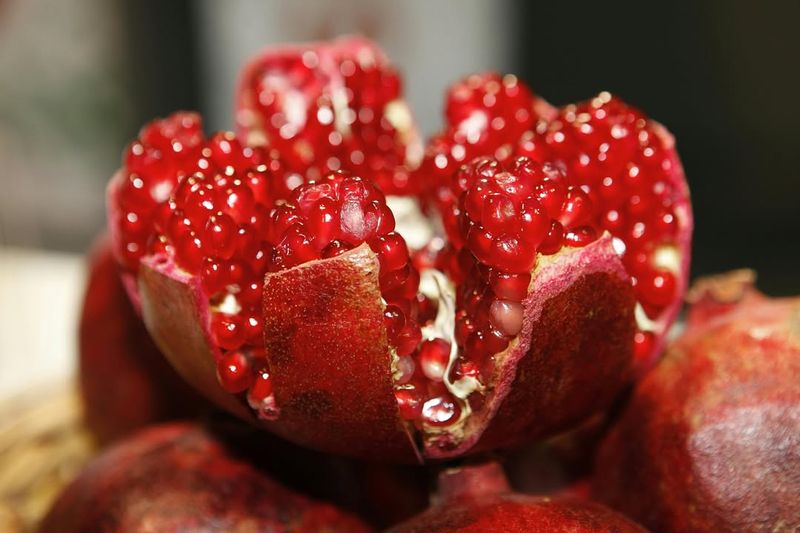
Pomegranates are known for their vibrant seeds, which provide about 1.5 grams of protein per cup. These seeds are also rich in antioxidants, promoting heart health and reducing inflammation. Pomegranate seeds can be sprinkled over salads, mixed into yogurts, or enjoyed on their own. Their sweet-tart flavor enhances both savory and sweet dishes. Adding pomegranates to your diet can introduce more protein and valuable nutrients, supporting overall well-being. Their striking appearance and health benefits make them a popular choice for those looking to enhance their meals with color and nutrition.
9. Raisins
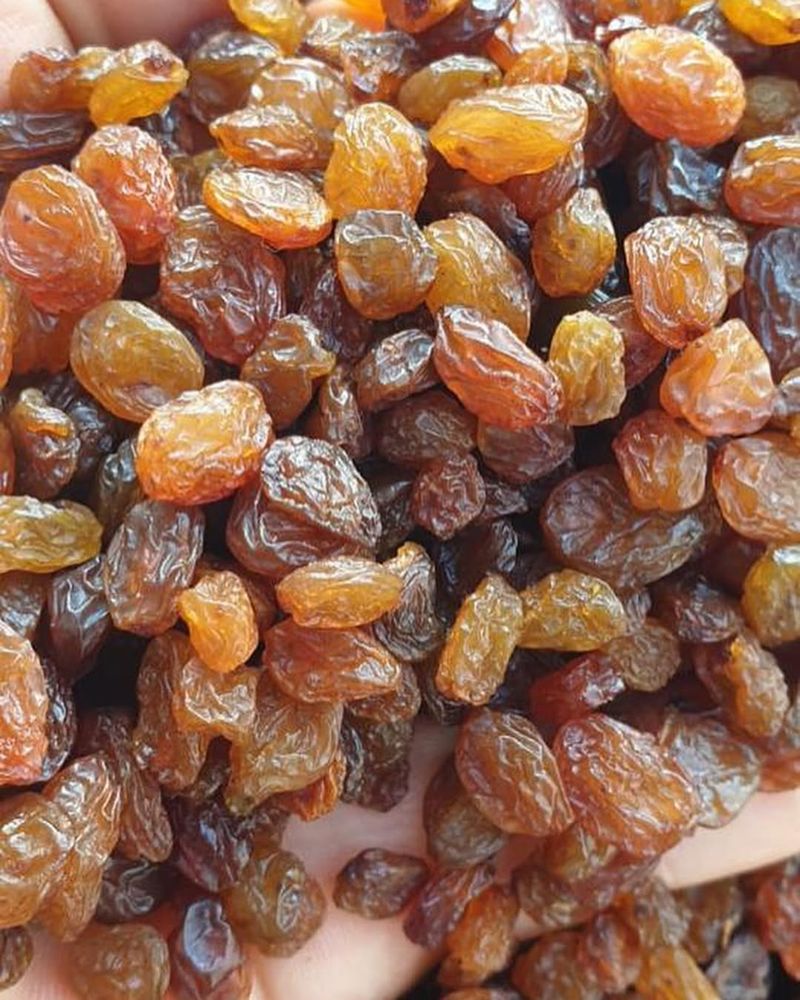
Raisins, the dried form of grapes, offer a concentrated source of nutrients, including about 1 gram of protein per serving. They are convenient snacks and can easily be added to cereals or baked goods. These little dried fruits provide energy and are rich in iron, supporting blood health. Raisins are a quick way to add protein and natural sweetness to your diet, making them a favored snack for many. Their portability and long shelf life make them an ideal choice for on-the-go nutrition, offering a handy source of energy and protein.
10. Mulberries
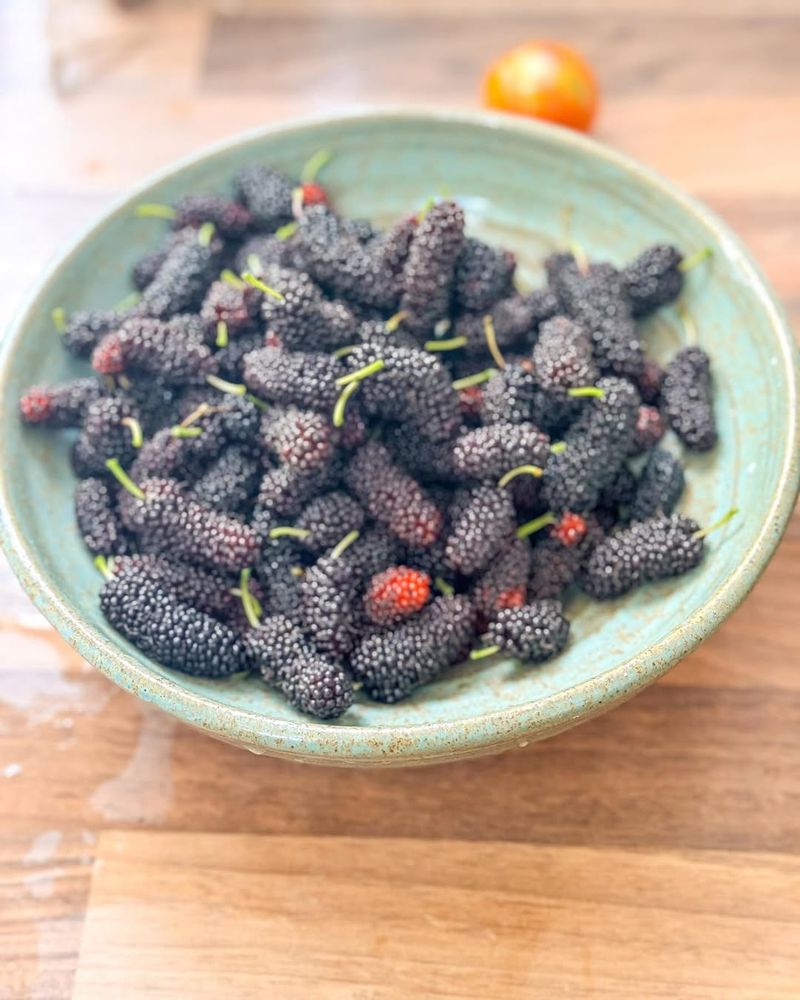
Mulberries provide around 2 grams of protein per cup, along with a rich array of vitamins and minerals. These berries are versatile and can be eaten fresh or dried. Mulberries are known for their sweet flavor and potential to support immune health. They can be added to cereals, smoothies, or desserts, enhancing dishes with their natural sweetness. Including mulberries in your diet can boost protein intake while offering the benefits of antioxidants. Their unique taste and texture make them an enjoyable and beneficial fruit choice for health enthusiasts.
11. Figs
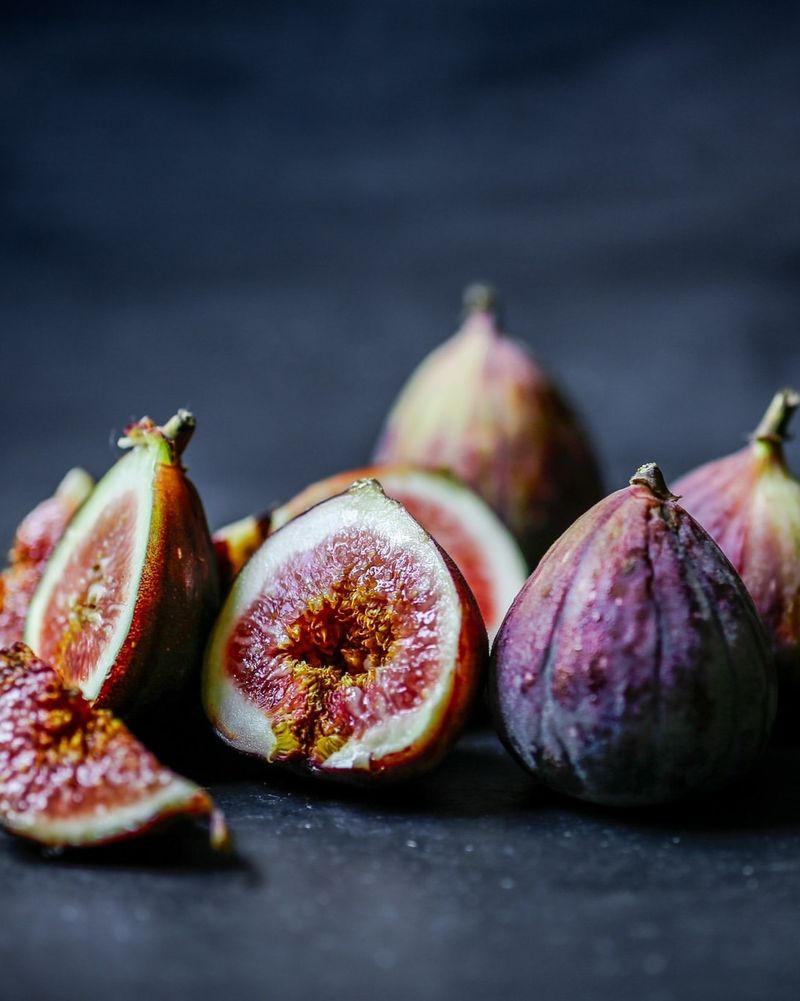
Figs are not only a sweet treat but also provide a decent amount of protein, with about 1 gram per serving. These fruits are often enjoyed fresh or dried, adding a rich texture to dishes. Figs are fiber-rich, supporting digestive health and offering a natural sweetness that enhances various culinary creations. Including figs in your diet can add both protein and flavor, making them a delightful addition to snacks and meals. Their ability to pair well with savory and sweet dishes makes them a versatile option for those seeking nutritious fruits.
12. Passion Fruit
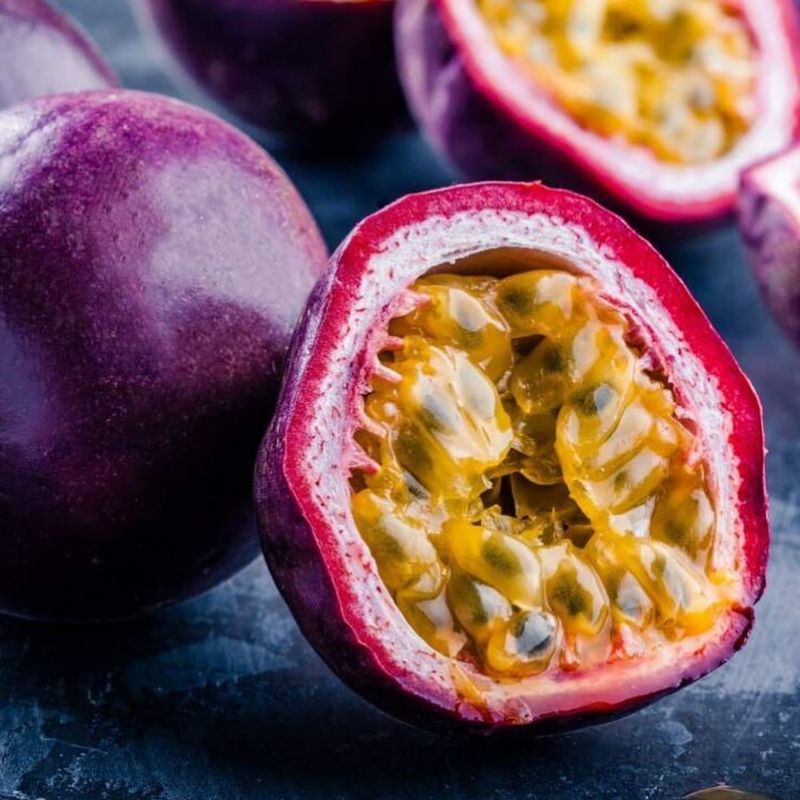
Passion fruit is a tropical gem, offering around 5 grams of protein per cup. Its exotic flavor and nutrient profile make it a favorite among many. This fruit can be eaten on its own or added to juices and desserts, providing a refreshing taste. Passion fruit’s high protein content, along with its vitamins and minerals, supports overall wellness. Including it in your diet can enhance your protein intake while delighting your taste buds with its unique flavor. Its vibrant appearance and health benefits make it a standout choice for fruit lovers.
13. Bananas
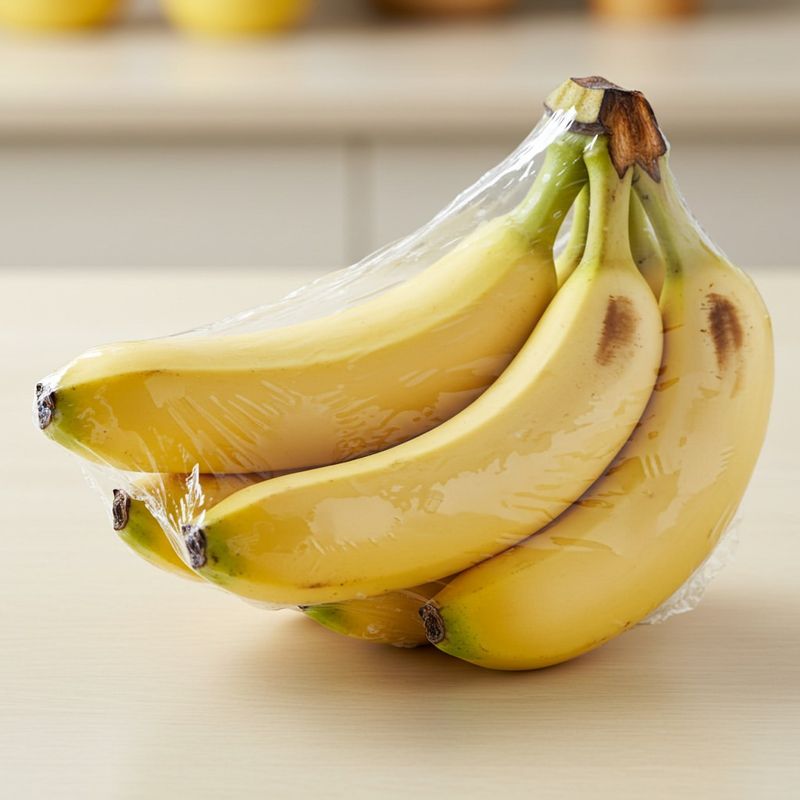
Bananas may not be the first fruit that comes to mind for protein, but they offer about 1.3 grams per serving. This popular fruit is highly versatile, often enjoyed on its own or added to smoothies and baked goods. Bananas provide energy and are rich in potassium, supporting muscle and nerve function. Including bananas in your diet can contribute to your protein intake while offering a convenient and healthy snack option. Their sweet flavor and portability make them a staple for many, perfect for athletes and busy individuals alike.
14. Cherries
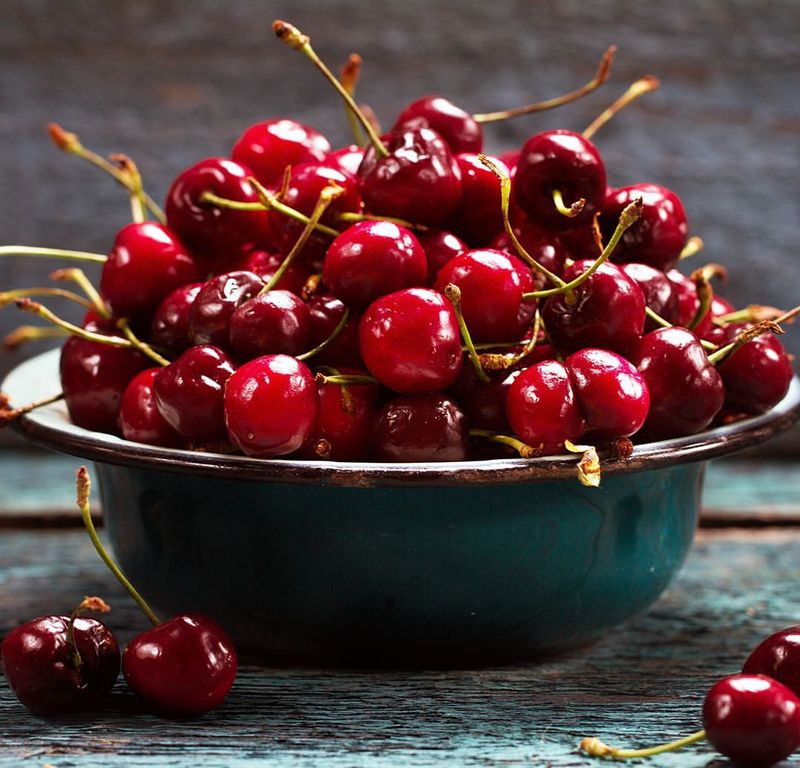
Cherries are known for their vibrant color and sweet taste, providing about 1 gram of protein per cup. These delicious fruits are packed with antioxidants, promoting health and wellness. Cherries can be enjoyed fresh, juiced, or as an ingredient in various dishes. Their sweet-tart flavor enhances desserts and snacks, offering a nutritious way to enjoy more protein. Including cherries in your diet can provide a refreshing burst of flavor and nutrients, supporting overall health. Their appeal and health benefits make them a delightful choice for fruit enthusiasts.
15. Papaya
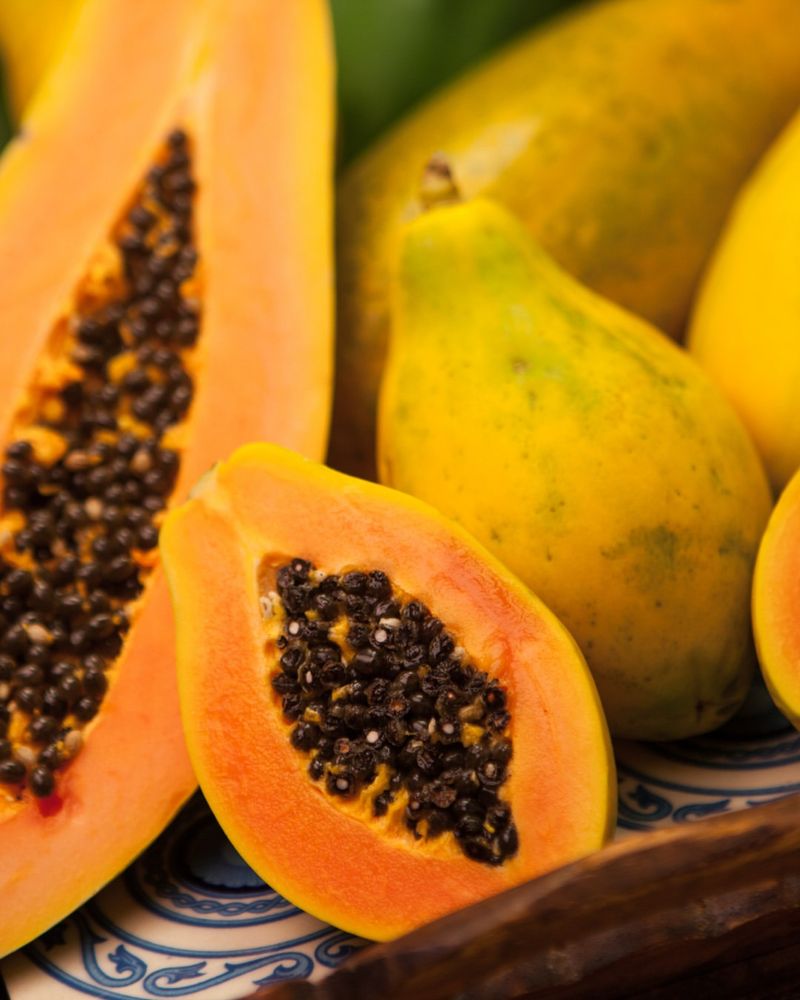
Papaya is a tropical delight, known for its vibrant color and sweet taste. Though not high in protein, offering about 0.5 grams per serving, its nutritional profile is impressive. Papayas are rich in vitamins A and C, supporting immune health and skin vitality. They can be enjoyed fresh, in smoothies, or as part of savory dishes. Including papaya in your diet can boost overall nutrition while adding a tropical twist to your meals. Its exotic flavor and health benefits make it a beloved choice for those seeking variety and nutrition in their diets.
